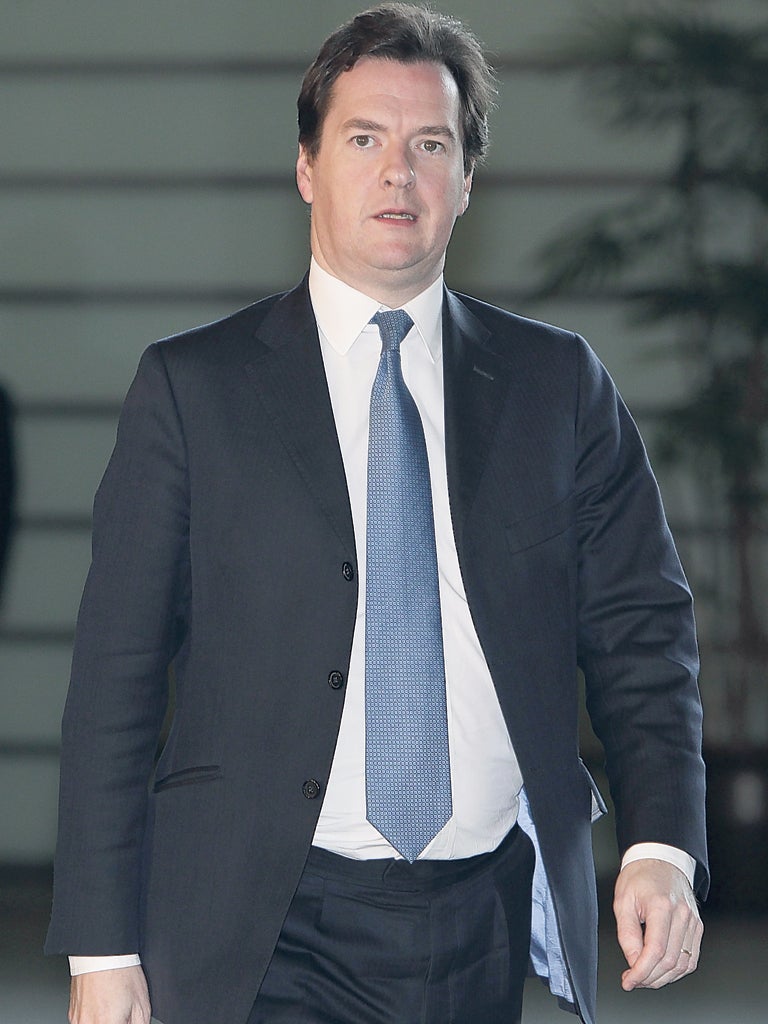Deadlock in Davos as pressure on Greece rises
Germany wants EU to seize control of Greek financial decisions as condition of €130bn rescue package – but Continent’s leaders struggle to agree on bailout plan

Europe's leaders remained locked in dispute yesterday over the size of the eurozone bailout funds, as it emerged Germany is pushing for Greece to be stripped of powers to control its budgets.
The move to make Greece hand over control of budgetary policy as the price for agreeing a €130bn rescue package would represent a humiliating blow to Greece's hopes of controlling its own destiny but could offer a means of staving off financial ruin.
The proposal was made by Germany as the euro group considered how extra finance should be offered to countries such as Greece which need support but are "continuously off-track" with their budgets. The idea, a source told Reuters, would be that European institutions already operating in Greece should be given "certain decision-making powers" over fiscal policy.
Details of the proposal emerged as finance ministers met at the World Economic Forum in Davos where France and Germany publicly disagreed over the size of the "firewall" needed to protect European economies. François Baroin of France said Europe's bailout resources urgently needed to be boosted to be able to rescue Spain and Italy, should that become necessary. "We consider that the higher the firewall, the less it will have to be used. This is a deterrent," he said.
His call came as it was announced that Spain's jobless total had passed five million. Last night the eurozone economy was dealt another blow when Fitch, the ratings agency, downgraded five European nations including, Italy and Spain, leaving Germany as the last major eurozone economy that maintains a triple-A rating.
Mr Baroin wants the €500bn European Stability Mechanism – the successor to the European Financial Stability Facility – to be introduced in the middle of this year. "If we can bring it forward even faster we will do it," he said. The idea has been mooted of running the two funds in tandem, which would boost the EU's bailout resources to about €750bn.
However, Wolfgang Schäuble, the German finance minister, rejected the idea that boosting the size of the rescue pot was either necessary or desirable. "You can have it any figure," he said. "The firewall will not work unless you solve the real problems."
More positively, the EU monetary affairs commissioner, Olli Rehn, said Greece was "very close" to a deal with a large group of its bondholders. "The next three days will be very crucial for the future three years," he said. "In other words, we're just about to close a deal on private sector involvement between the Greek government and the private sector community." He added that the deal would come "if not today [Friday], then over the weekend" and "preferably in January rather than February".
The Institute of International Finance – representing banks in the talks – has been in talks with the government since last October to reach an agreement. The IIF is said to have dropped its demands for the interest rate of its new, devalued, Greek bonds from 4 per cent to 3.75 per cent, getting closer to the 3.5 per cent Athens wants to pay. Greece needs the deal before a €14.5bn bond repayment on 20 March that it cannot afford falls due and tips the nation into default.
But the chairman of eurozone finance ministers, Jean-Claude Juncker, also warned yesterday that eurozone member states will probably have to increase their financial support for Greece if a deal between Athens and the private sector is concluded.
There have been suggestions in recent days that the European Central Bank, which has acquired about €45bn of Greek bonds, should write down the value of its holdings to increase the size of Athens' debt forgiveness package. This, however, has been fiercely resisted by Germany.
George Osborne, who was also in Davos, said European leaders were doing too little to stabilise the eurozone. "Frankly, it is not enough. Everyone knows it is not enough," he told a lunch of UK business leaders. He added that the inadequacy of the actions taken so far was undermining the health of the British economy.
Mr Osborne indicated that Britain would be prepared to increase its contribution to the resources of the International Monetary Fund so long as European governments were prepared to increase their own bailout resources first. "The world needs to see the colour of their money before it contributes any more" he said.
The money men: Key figures at the forum
'Frankly, it is not enough. Everyone knows it is not enough' - George Osborne, Britain
'Do we know that this money is going to help the real economy?' - Mario Draghi, European central bank
'The higher the firewall, the less it will have to be used. It will be a deterrent.' - Francois Baroin, France
'The firewall will not work unless you solve the real problems' - Wolfgang Schäuble, Germany
Join our commenting forum
Join thought-provoking conversations, follow other Independent readers and see their replies
Comments
Bookmark popover
Removed from bookmarks